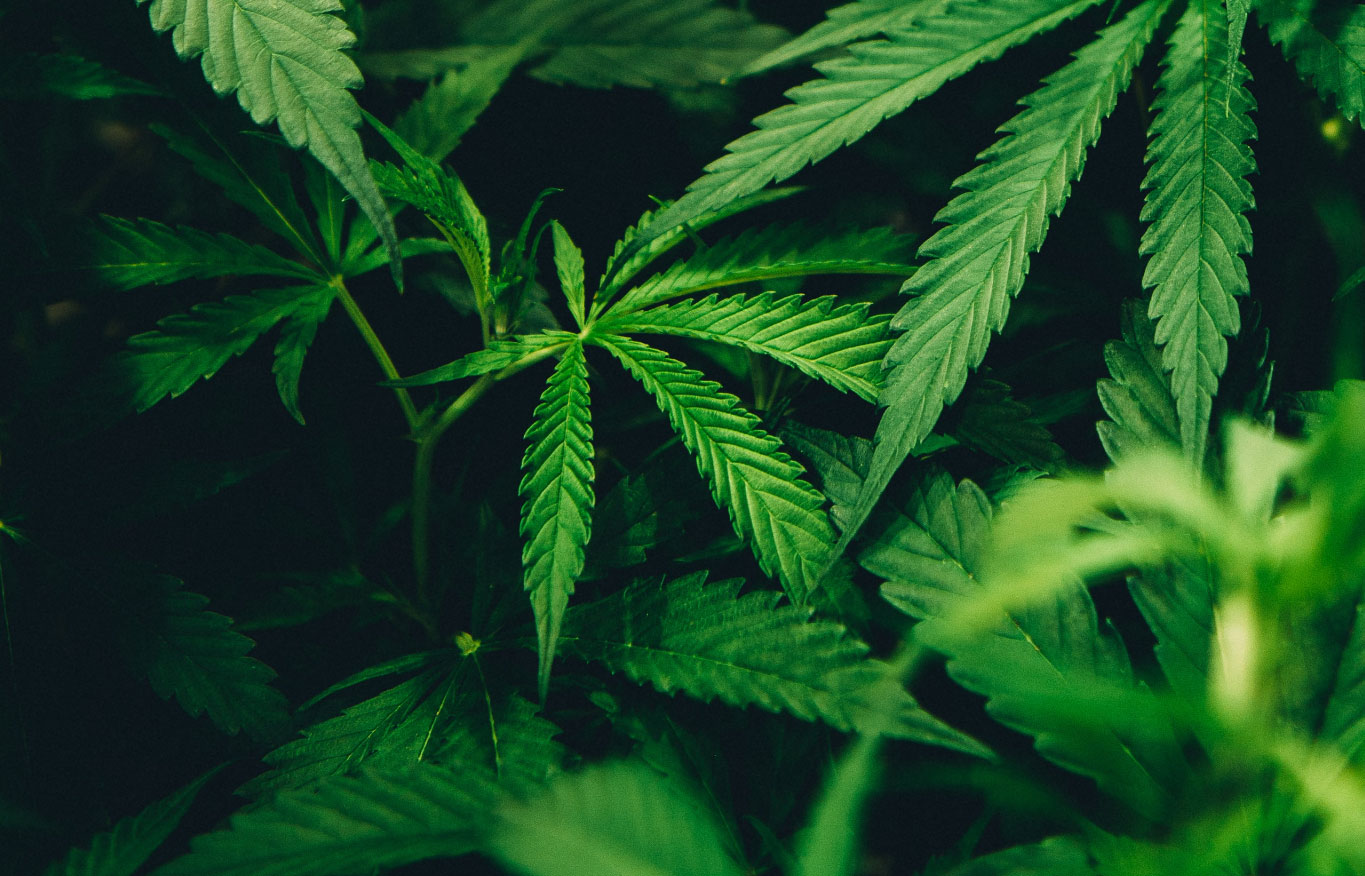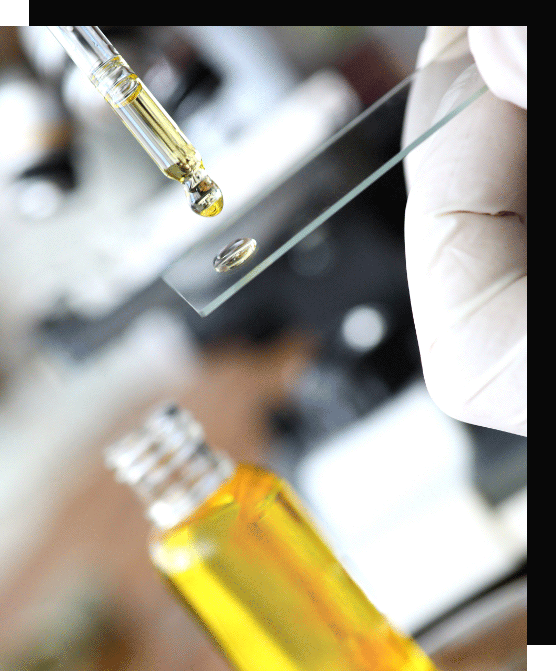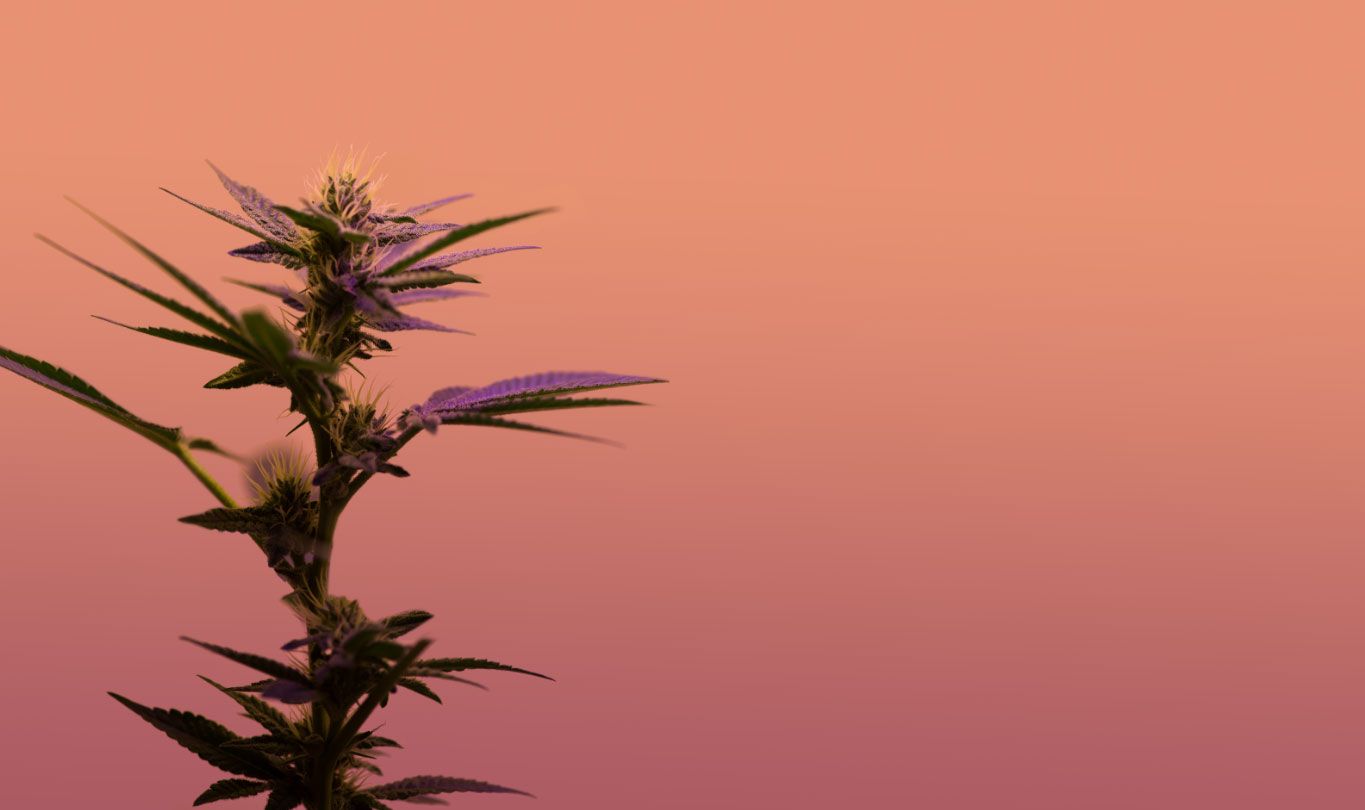Fragrances
Confections
Candles
Gift Sets
Pets

From Ancient China to the Middle East, Cannabis sativa has been used for thousands of years, however, the science of CBD have only recently been discovered and applied in the Western civilizations.
Extracted from the extraordinary hemp plant, CBD is a natural and non-psychotropic botanical.


Black Dahlia incorporates sustainably-cultivated CBD derived from all-natural, broad-spectrum hemp oil. Coupled with our proprietary nano-technology which provides rapid absorption and efficacy, our CBD-infused products deliver an unmatched experience.
To help demystify the science, we explain many of the commonly used terms and concepts relating to CBD, botanicals, and Cannabis sativa.
A botanical is a plant or plant part with inherent medicinal or therapeutic properties. Many botanicals typically contain numerous and diverse natural compounds that together aid and support the body. This unique, synergistic characteristic lies in stark contrast to the “silver bullet” single-molecule approach that is prevalent in most modern Western treatments and medicines.
Bioavailability is a measure of how readily a substance can be absorbed by the body. In pharmacology it refers to how quickly a drug enters the circulatory system and reaches the target area of the body so that it can take effect.
Unlike full-spectrum hemp oil, broad-spectrum hemp oils contain all of the plants’ valuable cannabinoids, terpenes and flavonoids, minus the THC. Unlike many other CBD brands, Black Dahlia does not incorporate isolated compounds extracted from the plants, such as CBD isolates. These isolates remove many of the other beneficial plant compounds found in hemp, specifically those found in broad-spectrum hemp oil.
Cannabinoids refer to the naturally occurring, organic compounds found in Cannabis plants which are known to exhibit a wide range of psychological and physiological effects.
To date, over 100 plant-derived cannabinoids have been identified and are collectively called “phyto-cannabinoids” (i.e., from plants) distinguishing these compounds from endo-cannabinoids which are produced by our own bodies.
Some of the most widely studied cannabinoids include tetra-hydro-cannabinol (or THC), cannabidiol (or CBD), and cannabinol (or CBN). While Cannabis sativa has been used for thousands of years, the scientific identification and properties of specific cannabinoids only began to be elucidated recently.
In 1785, European naturalist Jean-Baptiste Lamarck identified and named a second Cannabis species, Cannabis indica, meaning “cannabis from India.” In contrast to Cannabis sativa, Cannabis indica generally produces relatively large amounts of THC and has lower levels of CBD. Historically, it is likely that Sativa and Indica split geographically ages ago, creating these two distinct species: Cannabis sativa, narrow-leafed plants bred and grown for seed oil and hemp fiber (Eastern Europe/Western Asia), and Cannabis indica, both narrow and wide leafed plants, selected for their psychoactive, THC properties (South and East Asia). Black Dahlia products utilize cannabinoids from the non-psychotropic strain, Cannabis Sativa.
Cannabis sativa is an extraordinary plant species native to South and Eastern Asia but now grown across the world. It has been cultivated for industrial, nutritional and medicinal purposes for millennia but was first named in 1542 by physician-botanist Leonhart Fuchs. In 1753, Swedish botanist Carl Linnaeus further described and applied the scientific name Cannabis sativa, meaning “cultivated cannabis,” referring to the fiber-type species widely grown and utilized in Europe at the time for making clothing, textiles and paper. Cannabis sativa produces large amounts of non-psychotropic CBD and minimal amounts of psychotropic THC.
Cannabidiol, or CBD, is one of the most exciting phyto-cannabinoid compounds, a plant-derived botanical. Growing interest in CBD’s wellness applications are due to its non-psychotropic properties, low toxicity and high tolerability in humans and other animal species.
CBD is found in high levels in hemp, a variety of the Cannabis sativa plant. CBD exerts several positive effects without producing any “high,” making it a safe and effective addition to many wellness routines.
It is important to only use CBD oils that are extracted without the use of neurotoxic materials, such as butane, which may leave dangerous residues in the final product. Black Dahlia works with partners who utilize the best methods for CBD oil extraction via the use of CO2, which uses low temperatures and high pressures to create a potent and pure oil.
The endogenous cannabinoid system (ECS) was only recently discovered in the 1990’s and is a collection of biological systems in our bodies that include elements similar to cannabinoids from plants (phytocannabinoids). The ECS is composed of cellular receptors, their endogenous ligands (called endocannabinoids), and regulatory enzymes. The two most common cannabinoid cellular receptors in the body are the CB1 and CB2 receptors.
The ECS is thought to play a regulatory role in a variety of physiologic processing including homeostasis.
The entourage effect refers to the combined and synergistic effects of phyto-cannabinoids and other molecules from hemp all working together (similar to how teams are stronger when working together.) Our broad-spectrum, water-soluble hemp oil maintains many of the diverse botanical ingredients found in the hemp plant that can activate this entourage effect.
Full-spectrum hemp oils extracted from hemp flowers and leaves contain the compounds produced by those plant parts, including all its cannabinoids, terpenes, and flavonoids. Since industrial hemp can contain as much as 0.3% THC by dry weight, small levels of THC may also be present in full-spectrum hemp oils. Black Dahlia does not use full-spectrum hemp oils for this reason.
Hemp, also referred to as industrial hemp, is a variety of the Cannabis sativa plant species that has been grown for millenia and possesses multiple medicinal, recreational, and industrial applications.
Today hemp and hemp derivatives are used in products sold in many U.S. and international markets including fiber, paper, textiles, cosmetics, clothing, biodegradable plastics, paint, insulation, biofuel, human foods and supplements, and animal feed, among others.
Growing hemp has many environmental benefits and can help break our dependency on petrochemicals. Hemp grows to 13 feet in 100 days, making it one of the fastest carbon dioxide-to-biomass conversion crops or tools available. Industrial hemp has been shown to absorb more carbon dioxide (CO2) per acre than any forest or commercial crop, making it an ideal carbon sink. Hemp’s properties make it an optimal replacement for clear-cutting trees for their pulp; according to the USDA every one acre of hemp produces as much pulp as four acres of trees. Moreover, hemp can be harvested two to three times a year, unlike slow-growth forests which can take years or even decades to harvest.
Hemp seed oil is extracted by cold-pressing the seeds of the hemp plant. The resulting oil does not contain CBD or other cannabinoids at all, but does contain other healthful nutrients such as vitamins, amino acids, and essential fatty acids.
Homeostasis describes the natural maintenance of equilibrium in our bodies despite forces that might otherwise cause imbalances. Examples of homeostasis include how our bodies self-regulate our body temperature, pH in our blood, and hormone levels. Our healthy bodies can maintain homeostasis very reliably without even a second thought from us. However, when we are unhealthy, sick or simply rundown, our bodies may not be able to properly maintain such equilibrium.
The endogenous cannabinoid system (ECS) interacts with many homeostatic processes.
Marijuana is a completely different plant variety than hemp that happens to come from the same plant genus, Cannabis. Genetically different from one another, hemp and marijuana also have very different chemical compositions, applications, and effects on the mind and body. Marijuana generally refers to cannabis varietals with psychotropic properties due to their high concentration of the cannabinoid THC. In contrast, hemp is naturally quite low in THC and high in CBD.
Nano-emulsion refers to oil and water mixtures that contain nano-sized droplets. Most hemp oil products can take hours to be absorbed by the body and as a result many of the beneficial phyto-cannabinoids and other compounds are not even absorbed at all. In contrast, nano-sized phyto-cannabinoid emulsion droplets can enhance bioavailability and enable more rapid absorption. Together with our proprietary all-natural formulations, we use patented technology in our manufacturing process to break down phyto-cannabinoids into all-natural nano-emulsion droplets which improve absorption and efficacy.
A psychotropic describes any constituent that affects a person’s mental state, such as their behavior, thoughts, or perception. This umbrella term can refer to different botanicals and drugs, including prescription drugs and commonly misused drugs.
Marijuana is considered a psychotropic due to its mind-altering effects. The cannabinoid tetra-hydro-cannabinol (better known as THC) is the primary psychoactive component of the marijuana plant. By contrast, the cannabinoid CBD is a non-psychotropic compound found in cannabis plants. Chemically, CBD and THC are distinct and bind to different receptors in the body with differing affinities. These differences give rise to their different impacts on the mind, with CBD not inducing the mind-altering highs typically associated with marijuana cannabis. Various strains of cannabis express different levels of THC and CBD, along with many other cannabinoid compounds. We use extracts from hemp, a varietal of Cannabis sativa, that is high in CBD content with less than 0.3% delta-9 THC on a dry weight basis.
CBD is a non-psychotropic cannabinoid, meaning it will not cause any of the highs that are sometimes associated with cannabis. Black Dahlia products only use hemp oils that contain undetectable levels of the chemical compound THC (tetrahydrocannabinol) that causes the psychoactive high associated with cannabis. No discernable THC means our products produce no psychoactive effects or side effects associated with THC.